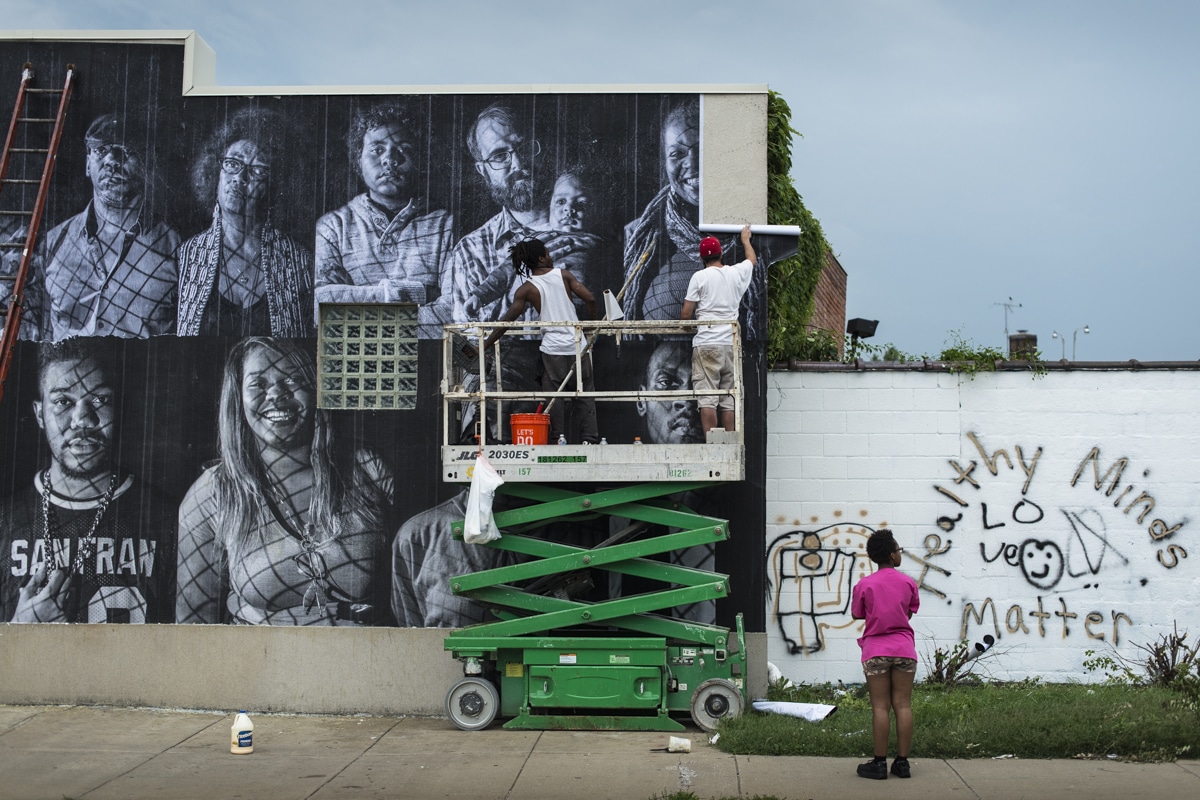In January, on the heels of some of the most intense protests Chicago had seen in a long while, I was asked to moderate a panel on organizing at a South Side church. Standing in the shadows of the altar, a tall, confident brown-skinned woman—only twenty-six years old and already a legendary organizer—stood up and explained why she had chosen not to go to college. She was poised, analytical, and grounded, precisely the kind of engaged critical thinker I want in my university classes. But there is a reason she is not there, she insisted: “I chose to stay in my community and organize.” To paraphrase her, “colleges try to indoctrinate you, brainwash you, and make you lose yourself.”
I get it. This is precisely how I felt when I arrived on Columbia University’s campus in 1980, after several years as an organizer in Detroit. Coming from a family with absolutely no college experience, I was expected to speak differently, embrace a new frame of reference for understanding the world, and to justify and defend the values and passions that had sustained me throughout my early life. The message, I felt, was that in order to succeed, I indeed had to lose myself as a black working-class woman and organizer. I refused. Negotiating the terms of this refusal has defined my career as a historian and an activist. It has meant settling into a state of appropriate discomfort.
Robin Kelley’s essay encourages us to resist the seductive comforts of the academy and to be ever vigilant about the role it plays in the larger unjust system of racial capitalism. Fred Moten and Stefano Harney urge us to become outlaws, to steal from the university: not pencils or laptops, but skills, ideas, and space, repurposing them for more egalitarian ends. And legendary Black Freedom organizer Ella Baker insisted that the only way to do radical work inside hierarchical organizations and established institutions is to function as an “outsider within”—to seek one’s frame of reference and source of affirmation and comfort beyond the bounds of such organizations and institutions.
How do these cautions and contradictions translate into praxis for today’s student activists? First of all, we have to applaud students for coming together and saying “no” to what they experience everyday as a racist environment. But, as we know, it is much easier to state the problem than to formulate an agenda that reflects what we are for. This is true on campus, in communities, and in large-scale revolutionary movements: oust the dictator, depose the tyrant. Then what? As my colleague Roderick Ferguson reminds us in his book The Reorder of Things, even the seemingly major reforms—such as the establishment of black studies and other interdisciplinary programs—are co-optable.
The best demands, still to be formulated, will be for “non-reformist” reforms. This notion, advanced by philosopher André Gorz and re-inscribed in the work of scholar and abolitionist Ruth Gilmore, describes activism (in Gorz’s words) as “conceived not in terms of what is possible within the framework of a given system and administration, but in view of what should be made possible in terms of human needs and demands.” We need such an agenda for higher education, one that demands not just responses to individual trauma, but also a radical recalibration of what universities owe—and not only to students and faculty, but also to campus workers and to communities beyond the campus.
As Kelley says, all major campus uprisings have been fueled by community-based struggles for change. Martha Biondi’s The Black Revolution on Campus underscores this point in elegant detail. The concessions that colleges and universities have made to the demand for radical inclusion amount to a “some of y’all, not all of y’all” formula. Institutions agreed to take the so-called “best and brightest,” the “most deserving,” the “truly exceptional” students of color. The price of entry has often been for those students to accept the notion that they are different and better than their cousins, neighbors, and even siblings who are either excluded from entry or—worse—tracked into the parallel prison industry. Truly transformative demands have to reject that divisive formula, shrouded in the myth of meritocracy. The demand for open admissions and free tuition strikes at the heart of the matter.
Most working-class black people never set foot on college campuses, but many do. In fact, universities are full of black non-professional employees who do groundskeeping, housekeeping, catering, and clerical work. Their concerns have to be our concerns too. Making the demand that all campus workers be paid a living wage would be an enormous statement of solidarity by student activists. Some are doing just that. The recently published Agenda to Build Black Futures of Black Youth Project 100, the far-reaching and hard-hitting demands of the students at UNC, Chapel Hill, and the successful Prison Divest campaign at Columbia are all models for what non-reformist reform platforms might look like.
The undercommons is both an appealing and necessary site for insurgent collaboration, but we cannot overly romanticize it. It is not the only place we must do our work. While we labor to create alternative and ulterior spaces for critical collective thought and planning, we have to simultaneously fight for a greater margin of justice in the public square of the academy, to try to hold institutions accountable as best we can to what they say they represent, and to support black students’ right to self-defense through protest against physical and psychological injury. In the long run their well-being requires building a liberation movement that extends beyond the borders of the university.








